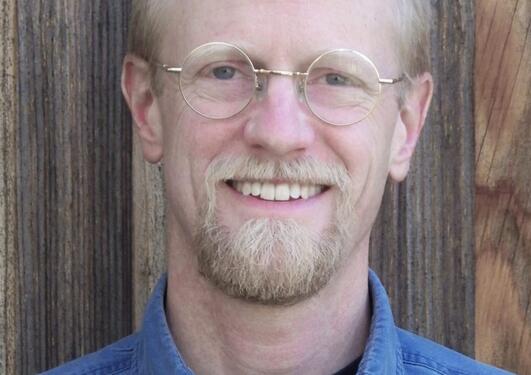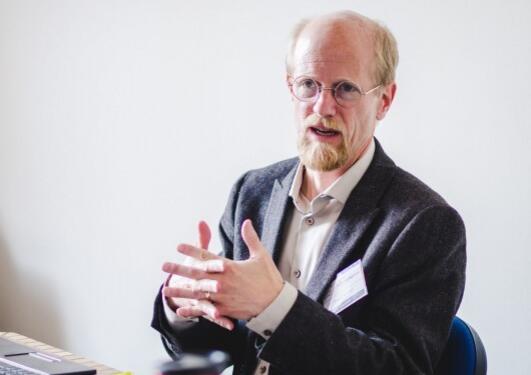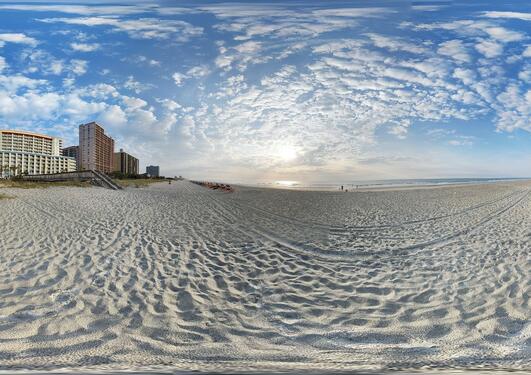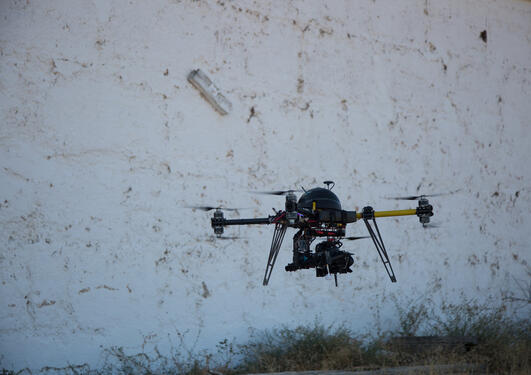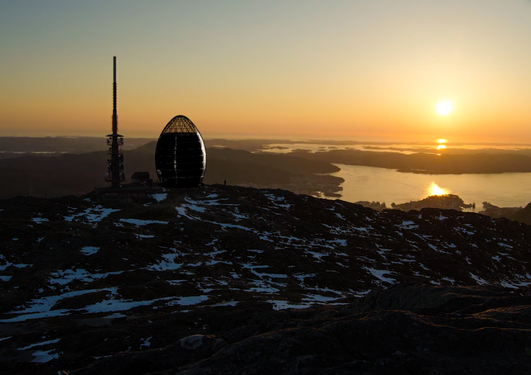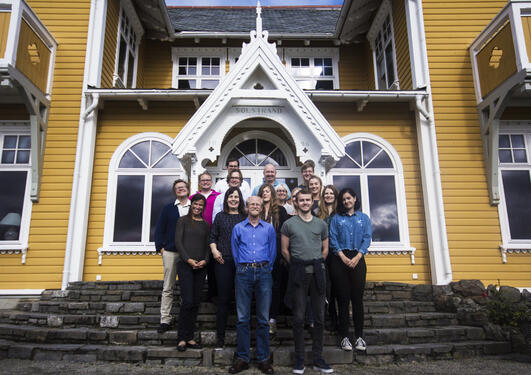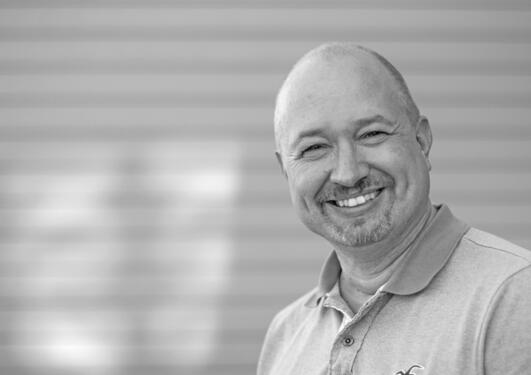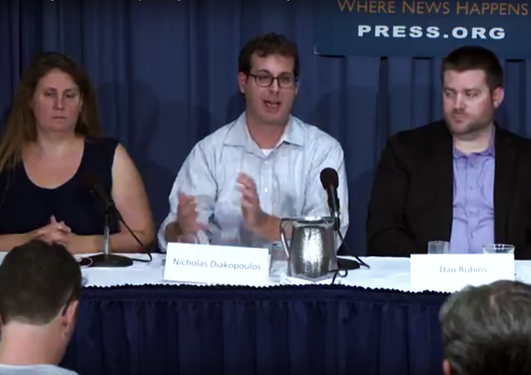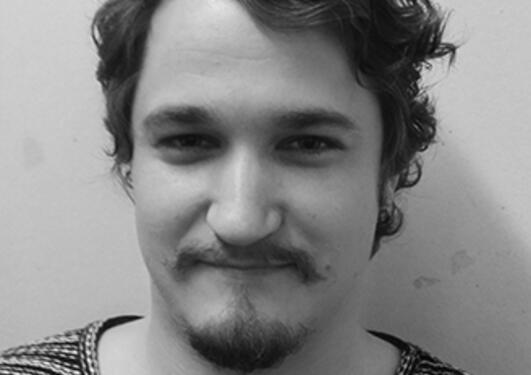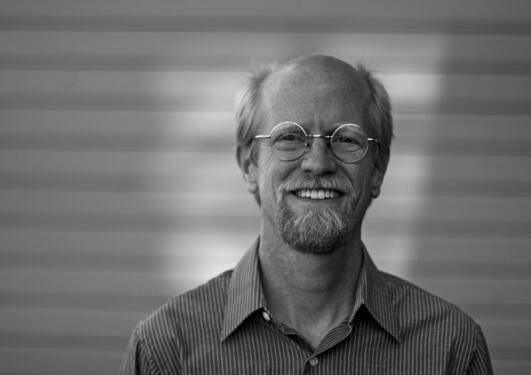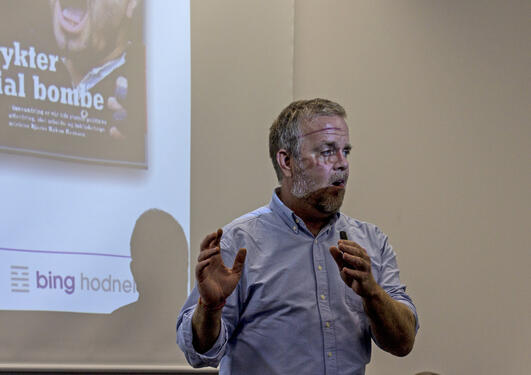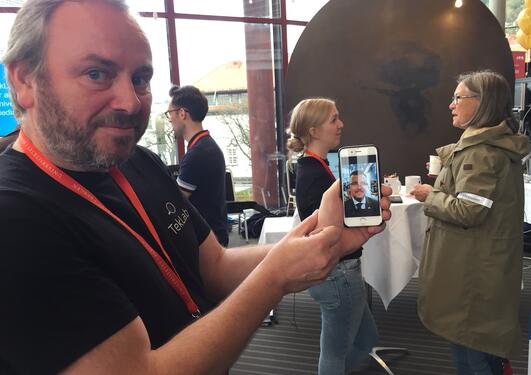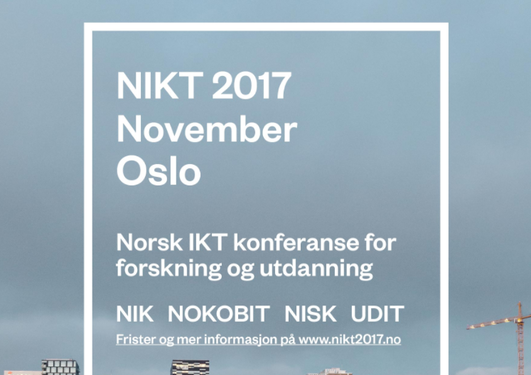News archive for ViSmedia
News agencies compete with social media and citizen journalists about visual content. This competition creates an increasingly more visual news room.
At the annual meeting of the American Association of Geographers in Boston, Massachusetts on April 5-8, Paul Adams presented «Performing Europe through Migration Maps». The paper was presented during the session «Contextualizing the effects of the European Migration ‘Crisis’».
What does Internet cookies and online surveillance have to do with «echo chambers» and fake news?
Watchdogging or investigative reporting? Leave some of the work to the algorithms!
How can virtual reality (VR) fit into the competitive media environment of the 2010s?
ViSmedia’s Øyvind Vågnes plays a role in Krisis’ first edition of the year.
In May 2017, 12 New Media students presented visionary uses of 3D modeling in drone videos. The course, which was run by Professor Lars Nyre, dealt with journalistic mobile applications. Within the creative framework of innovation pedagogy, the students were challenged to build 3D models to be used in visual storytelling.
Topics such as migration maps and mojo journalism were discussed when the ViSmedia researchers and graduate students met for the annual Fall Research Seminar.
Employees at University of Bergen (UiB) will present ongoing digitalization projects and future digital solutions October 4. All employees are welcome.
ViSmedia Researcher Turo Uskali is frequently used as an expert on journalism innovation in Finnish media.
How are algorithms being deployed in decision-making processes? This question was posed at a panel event on algorithmic transparency and accountability in New York.
In a master thesis last year, Joar Midthun set out to design a science research artefact for anonymizing faces in images.
In a brand new article published in Journalism Studies, Professor Paul C. Adams provides practical guidelines for producing unbiased maps about immigration.
The experienced media attorney Jon Wessel-Aas says encrypted technology helps people take back their privacy. Encrypted technology is getting increasingly available.
Prosopo seeks to give anonymized images a face. On October 4, the app was presented at Digital Day in Grieghallen in Bergen.
Astrid Gynnild is heading to Odense to discuss opportunities and dilemmas of drone journalism in responsible manners.
If anyone can take a photo, what is the role of photojournalism in our time? This is one of many questions this special issue of Nordic Review explores.
Could face morphing have a potential in a journalistic setting?
Pages
- September 2021 (12)
- August 2021 (87)
- July 2021 (33)
- June 2021 (1)
- December 2016 (1)

